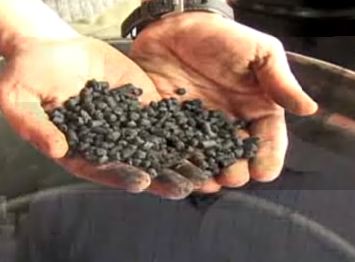 The Bill & Melinda Gates Foundation Thursday announced 88 new winners of $100,000 grants to support innovative research that has the potential to dramatically improve lives in some of the world’s poorest countries. The funding, made possible through the Grand Challenges Exploration program, will enable researchers worldwide to test unorthodox ideas that address persistent health and development challenges.
The Bill & Melinda Gates Foundation Thursday announced 88 new winners of $100,000 grants to support innovative research that has the potential to dramatically improve lives in some of the world’s poorest countries. The funding, made possible through the Grand Challenges Exploration program, will enable researchers worldwide to test unorthodox ideas that address persistent health and development challenges.
“One bold idea is all it takes to catalyze new approaches to global health and development,” said Dr. Tachi Yamada, president of Global Health at the Bill & Melinda Gates Foundation.
The contest asked researchers to tackle problems such as speeding progress toward assuring polio eradication; leveraging cell phones to improve access to life-saving vaccines; applying new technologies to improve maternal and newborn health; finding ways to eliminate all reservoirs of HIV from a patient; and, creating next generation sanitation technologies to help reduce the burden of diarrheal disease.
Winners were selected from over 2,500 proposals uploaded from 100 countries. The program continues its search for innovative ideas, and applications for the next round are being accepted at the website through May 19, 2011.
Here are some of the health researchers, engineers, and entrepreneurs winning Round 6:
* James Flanegan of the University of Florida will explore developing a poliovirus vaccine with protein shells that look like the virus but are not infectious.
* Erez Lieberman-Aiden and his team at Harvard University propose to develop a low-cost microbial fuel cell from naturally occurring soil microbes which could be used to recharge a cell phone. These fuel cells do not require any sophisticated materials to build, and can be easily assembled using locally available materials.
* Marc-Andre Langlois of the University of Ottawa, Canada, will develop small molecules that combine together to form a toxic compound that specifically eliminates only HIV-infected cells. If successful, it could lead to a cure for HIV.
* Guillermo Bazan of the University of California, Santa Barbara will explore an innovative way to break down human waste and convert the energy into electricity and heat.
* Virginia Gardiner of Loowatt Ltd. in the United Kingdom will develop a waterless toilet that seals waste into a portable cartridge within biodegradable film, for local anaerobic digestion. The digester produces fuel and fertilizer, creating local waste treatment economies.
* Olufunke Cofie of the International Water Management Institute in Ghana will develop fertilizer pellets made from treated human waste for market sale to increase agricultural productivity in sub-Saharan Africa and reduce health risks from untreated waste.
Launched in 2008, the $100 million Grand Challenges Explorations program is funded by the Bill & Melinda Gates Foundation. Grants have already been awarded to nearly 500 researchers from over 40 countries. The grant program is open to anyone from any discipline and from any organization. The initiative uses an agile, accelerated grant-making process with short two-page online applications and no preliminary data required. Initial grants of $100,000 are awarded twice a year. Successful projects have the opportunity to receive a follow-on grant of up to $1 million.



















